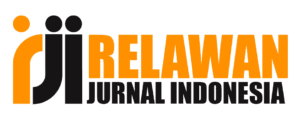Implementing Digital Literacy Policies and the Challenges of Towards Smart City in Palembang City
Abstract
This research examines digital literacy's role in supporting smart city development in Palembang City by focusing on four key aspects, including digital skills, digital safety, digital ethics, and digital culture. This study uses a qualitative descriptive approach to use primary and secondary data. The analysis tool used is Nvivo 12 Plus. These findings successfully analyze the challenges faced in integrating digital literacy in smart city development, including digital literacy gaps, privacy concerns, lack of awareness of benefits, technical challenges, and cultural changes. In addition, the role of government and regulation and cross-sector collaboration are also explained as important factors in creating an environment that supports holistic digital literacy. The results of this study provide a comprehensive view of how digital literacy can play a key role in facing challenges and optimizing the benefits of smart technology in the development of inclusive and sustainable smart cities. This research contributes to stakeholders involved in planning and implementing smart cities, as well as providing directions for effective digital literacy efforts in the future.
References
Adil, M., & Khan, M. K. (2021). Emerging IoT Applications in Sustainable Smart Cities for COVID-19: Network Security and Data Preservation Challenges with Future Directions. Sustainable Cities and Society, 75, 103311. https://doi.org/https://doi.org/10.1016/j.scs.2021.103311
Baharuddin, T., Sairin, S., Nurmandi, A., Qodir, Z., & Jubba, H. (2022). Building Social Capital Online During the COVID-19 Transition in Indonesia. Jurnal Komunikasi Ikatan Sarjana Komunikasi Indonesia, 7(1), 130–142. https://doi.org/10.25008/jkiski.v7i1.607
Bejaković, P., & Mrnjavac, Ž. (2020). The importance of digital literacy on the labour market. Employee Relations, 42(4), 921–932. https://doi.org/10.1108/ER-07-2019-0274
Bhatt, I., De Roock, R., & Adams, J. (2015). Diving Deep into Digital Literacy: Emerging Methods for Research. Language and Education, 29(6), 477–492. https://doi.org/https://doi.org/10.1080/09500782.2015.1041972
Borda, A., & Bowen, J. P. (2019). Smart Cities and Digital Culture: Models of Innovation. In Springer Series on Cultural Computing (pp. 523–549). https://doi.org/10.1007/978-3-319-97457-6_27
Caputo, F., Magliocca, P., Canestrino, R., & Rescigno, E. (2023). Rethinking the Role of Technology for Citizens’ Engagement and Sustainable Development in Smart Cities. Sustainability, 15(13), 10400. https://doi.org/10.3390/su151310400
Cheela, V. R. S., Ranjan, V. P., Goel, S., John, M., & Dubey, B. (2021). Pathways to sustainable waste management in Indian Smart Cities. Journal of Urban Management, 10(4), 419–429. https://doi.org/10.1016/j.jum.2021.05.002
Coghlan, S., Miller, T., & Paterson, J. (2021). Good Proctor or “Big Brother”? Ethics of Online Exam Supervision Technologies. Philosophy and Technology, 34(4), 1581–1606. https://doi.org/10.1007/s13347-021-00476-1
Dabbous, A., Barakat, K. A., & Kraus, S. (2023). The impact of digitalization on entrepreneurial activity and sustainable competitiveness: A panel data analysis. Technology in Society, 73, 102224. https://doi.org/10.1016/j.techsoc.2023.102224
Das, D., & Zhang, J. J. (2021). Pandemic in a smart city: Singapore’s COVID-19 management through technology & society. Urban Geography, 42(3), 408–416. https://doi.org/10.1080/02723638.2020.1807168
Falloon, G. (2020). From digital literacy to digital competence: the teacher digital competency (TDC) framework. Educational Technology Research and Development, 68(5), 2449–2472. https://doi.org/10.1007/s11423-020-09767-4
Floridi, L. (2019). Translating Principles into Practices of Digital Ethics: Five Risks of Being Unethical. Philosophy and Technology, 32(2), 185–193. https://doi.org/10.1007/s13347-019-00354-x
Goodman, N., Zwick, A., Spicer, Z., & Carlsen, N. (2020). Public engagement in smart city development: Lessons from communities in Canada’s Smart City Challenge. Canadian Geographer, 64(3), 416–432. https://doi.org/10.1111/cag.12607
Harrison, T. (2016). Cultivating cyber-phronesis: a new educational approach to tackle cyberbullying. Pastoral Care in Education, 34(4), 232–244. https://doi.org/10.1080/02643944.2016.1202307
Hartley, J., McWilliam, K., Burgess, J. E., & Banks, J. A. (2008). The Uses of Multimedia: Three Digital Literacy Case Studies. Media International Australia: Incorporating Culture and Policy, 128, 59–72.
Hassankhani, M., Alidadi, M., Sharifi, A., & Azhdari, A. (2021). Smart city and crisis management: Lessons for the covid-19 pandemic. International Journal of Environmental Research and Public Health, 18(15), 7736. https://doi.org/10.3390/ijerph18157736
Hati, C. (2022, September 16). Melalui Program Literasi Digital, Masyarakat Palembang Diharapkan Melek Teknologi. Www.Jpnn.Com.
Hatuka, T., & Zur, H. (2020). From smart cities to smart social urbanism: A framework for shaping the socio-technological ecosystems in cities. Telematics and Informatics, 55. https://doi.org/10.1016/j.tele.2020.101430
Hu, Q., & Zheng, Y. (2021). Smart city initiatives: A comparative study of American and Chinese cities. Journal of Urban Affairs, 43(4), 504–525. https://doi.org/10.1080/07352166.2019.1694413
Ismagilova, E., Hughes, L., Rana, N. P., & Dwivedi, Y. K. (2022). Security, Privacy and Risks Within Smart Cities: Literature Review and Development of a Smart City Interaction Framework. Information Systems Frontiers, 24(2), 393–414. https://doi.org/10.1007/s10796-020-10044-1
Jubba, H., Baharuddin, T., Pabbajah, M., & Qodir, Z. (2020). Dominasi Internet di Ruang Publik : Studi Terhadap Penyebaran Wacana Gerakan Bela Islam 212 di Indonesia. Al Izzah: Jurnal Hasil-Hasil Penelitian, 15(1), 1–13. https://doi.org/http://dx.doi.org/10.31332/ai.v0i0.1631
Kaluarachchi, Y. (2022). Implementing Data-Driven Smart City Applications for Future Cities. Smart Cities, 5(2), 455–474. https://doi.org/10.3390/smartcities5020025
Kateryna, A., Oleksandr, R., Mariia, T., Iryna, S., Evgen, K., & Anastasiia, L. (2020). Digital literacy development trends in the professional environment. International Journal of Learning, Teaching and Educational Research, 19(7), 55–79. https://doi.org/10.26803/ijlter.19.7.4
Khan, H. H., Malik, M. N., Zafar, R., Goni, F. A., Chofreh, A. G., Klemeš, J. J., & Alotaibi, Y. (2020). Challenges for sustainable smart city development: A conceptual framework. Sustainable Development, 28(5), 1507–1518. https://doi.org/10.1002/sd.2090
Kobsiripat, W. (2015). Effects of the Media to Promote the Scratch Programming Capabilities Creativity of Elementary School Students. Procedia - Social and Behavioral Sciences, 174, 227–232. https://doi.org/10.1016/j.sbspro.2015.01.651
Komninos, N., Pallot, M., & Schaffers, H. (2013). Special Issue on Smart Cities and the Future Internet in Europe. Journal of the Knowledge Economy, 4(2), 119–134. https://doi.org/10.1007/s13132-012-0083-x
Masucci, M., Pearsall, H., & Wiig, A. (2020). The Smart City Conundrum for Social Justice: Youth Perspectives on Digital Technologies and Urban Transformations. Annals of the American Association of Geographers, 110(2), 476–484. https://doi.org/10.1080/24694452.2019.1617101
Moser, C., & Deichmann, D. (2021). Knowledge sharing in two cultures: the moderating effect of national culture on perceived knowledge quality in online communities. European Journal of Information Systems, 30(6), 623–641. https://doi.org/10.1080/0960085X.2020.1817802
Nelson, K., Courier, M., & Joseph, G. W. (2011). Teaching Tip An Investigation of Digital Literacy Needs of Students. Journal of Information Systems Education, 22(2), 95–109. https://ezproxy.lib.uwm.edu/login?url=http://search.ebscohost.com/login.aspx?direct=true&AuthType=ip,uid&db=lih&AN=66339172&site=ehost-live&scope=site
Ngai, E. W. T., Tao, S. S. C., & Moon, K. K. L. (2015). Social media research: Theories, constructs, and conceptual frameworks. International Journal of Information Management, 35(1), 33–44. https://doi.org/10.1016/j.ijinfomgt.2014.09.004
Nisi, V., Prandi, C., & Nunes, N. J. (2020). Making Smart Cities More Playable (Issue January). https://doi.org/10.1007/978-981-13-9765-3
Nitoslawski, S. A., Galle, N. J., van den Bosc, C. K., & Steenberg, J. W. N. (2019). Smarter ecosystems for smarter cities? A review of trends, technologies, and turning points for smart urban forestry. Sustainable Cities and Society, 51, 101770. https://doi.org/10.1016/j.scs.2019.101770
Pangrazio, L., Godhe, A. L., & Ledesma, A. G. L. (2020). What is digital literacy? A comparative review of publications across three language contexts. E-Learning and Digital Media, 17(6), 442–459. https://doi.org/10.1177/2042753020946291
Rifaid, Abdurrahman, Baharuddin, T., & Kusuma, B. M. A. (2023). Smart City Development in the New Capital City : Indonesian Government Plans. Journal of Contemporary Governance and Public Policy, 4(2), 115–130. https://doi.org/https://doi.org/10.46507/jcgpp.v4i2.141
Rizkinaswara, L. (2022). Kominfo Beberkan Enam Arah Peta Jalan Indonesia Digital 2021-2024. Kominfo.Go.Id. https://aptika.kominfo.go.id/2022/03/kominfo-beberkan-enam-arah-peta-jalan-indonesia-digital-2021-2024/
Shin, S. Y., Kim, D., & Chun, S. A. (2021). Digital divide in advanced smart city innovations. Sustainability (Switzerland), 13(7), 1–22. https://doi.org/10.3390/su13074076
Stephens, J. M., Young, M. F., & Calabrese, T. (2007). Does moral judgment go offline when students are online? A comparative analysis of undergraduates’ beliefs and behaviors related to conventional and digital cheating. Ethics and Behavior, 17(3), 233–254. https://doi.org/10.1080/10508420701519197
Syefrinando, B., Sukarno, Ariawijaya, M., & Nasukha, A. (2022). the Effect of Digital Literacy Capabilities and Self-Regulation on the Student’S Creativity in Online Physics Teaching. Jurnal Pendidikan IPA Indonesia, 11(3), 489–499. https://doi.org/10.15294/jpii.v11i3.31811
Thilakarathne, N. N., & Priyashan, W. D. M. (2022). An Overview of Security and Privacy in Smart Cities. In IoT and IoE Driven Smart Cities (pp. 21–44). Springer, Cham. https://doi.org/10.1007/978-3-030-82715-1_2
Tinmaz, H., Lee, Y. T., Fanea-Ivanovici, M., & Baber, H. (2022). A systematic review on digital literacy. Smart Learning Environments, 9(21), 1–18. https://doi.org/10.1186/s40561-022-00204-y
Treiblmaier, H., Rejeb, A., & Strebinger, A. (2020). Blockchain as a driver for smart city development: Application fields and a comprehensive research agenda. Smart Cities, 3(3), 853–872. https://doi.org/10.3390/smartcities3030044
Verma, S. (2022). Sentiment analysis of public services for smart society: Literature review and future research directions. In Government Information Quarterly (Vol. 39, Issue 3, p. 101708). https://doi.org/10.1016/j.giq.2022.101708
Wang, C. H., & Wu, C. L. (2022). Bridging the digital divide: the smart TV as a platform for digital literacy among the elderly. Behaviour and Information Technology, 41(12), 2546–2559. https://doi.org/10.1080/0144929X.2021.1934732
Wirtz, B. W., Müller, W. M., & Schmidt, F. W. (2021). Digital Public Services in Smart Cities – an Empirical Analysis of Lead User Preferences. Public Organization Review, 21(2), 299–315. https://doi.org/10.1007/s11115-020-00492-3
Copyright (c) 2023 Journal of Governance and Local Politics (JGLP)

This work is licensed under a Creative Commons Attribution-NonCommercial-NoDerivatives 4.0 International License.










